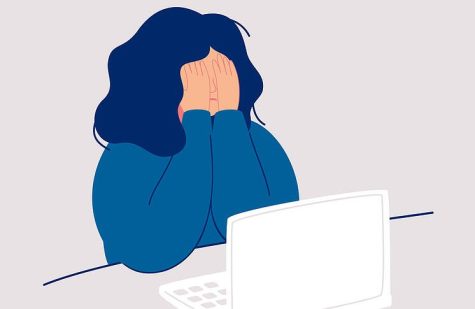World Sleep Day: Tips for Better Sleep (March 20, 2015)
Do you ever catch yourself saying, “I’m so tired!” multiple times throughout the day? Do you hate first-period classes because you can never keep your eyes open? Can you never finally fall asleep until an unmentionable hour in the night? If so, you might be suffering from a lack of sleep. It is strongly recommended for teens to get eight and a half to nine hours or more of sleep each night (kidshealth.org), and probably many of us can barely squeeze in six or seven hours of shut eye.
Everyone wants to have a better night’s rest, so what can you do to sleep better tonight? First off, make sure your room is dark and cool. Any glow, whether from an electronic alarm clock or your silent cell phone can disrupt sleep, and the room should be kept between 60 and 67 degrees Fahrenheit. There’s nothing worse than being freezing or dying hot when going to bed. Turning off all electronic devices an hour before bedtime can also have a large impact. When they’re on, they trigger the brain to think that it’s time to be awake and alert to whatever is happening outside of the bedroom.
Cutting the coffee or caffeinated beverages by two in the afternoon is strongly recommended by experts because “caffeine has a half-life of about eight to ten hours, and to stop drinking caffeine at two p.m. will not affect the depth of the sleep you will get” (Dr. Michael Breus).
If you find your mind racing as you are trying to fall asleep, working through your problems and tasks for the next day before you go to bed or writing them down in a list or notebook can be extremely beneficial because “…you clear your mental desktop of the stuff that you still have to think about. And then you go to bed.” (Michael A. Grandner, Ph.D.). So, maybe your mind isn’t racing, but your feelings are. Try some yoga, meditation, or prayer to help your mind wind down. With these, you can slow your breathing and heart rate, making it easier to fall asleep.
Finally, instead of setting that alarm clock for six a.m. when you always get up at six thirty, just set it for six thirty instead because sleep between the snooze buttons is not quality sleep and will make you feel groggier than when you wake up during other times in the night.
Even if you have three tests the following day, a research paper due that you haven’t started, or have sports practice, piano lessons, babysitting, and enough homework to “fill the ark” one night, it is vitally important to get that recommended amount of sleep to benefit your health and benefit those around you.









